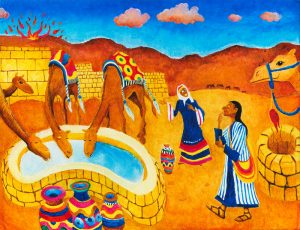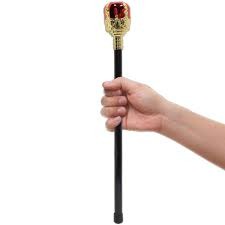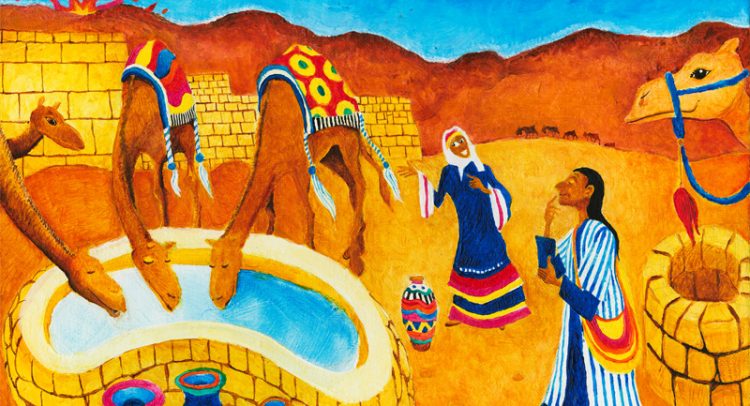 Raboyseyee and Ladies,
Raboyseyee and Ladies,
Marrying Wealthy:
Did Rivka marry Yitzchok davka because he was rich? Say it’s not so please, but is it? Welcome to Parshas Chaya Soro where we shall -among other topics- explore the role wealth played in the shidduch, ober ershtens (firstly)….
This week we continue our look into secondary Toirah characters as we say hello and give a proper shout-out to Eliezer, he the trusted servant of Avrohom Ovenu. Secondary? Avada every person whose name is shouted out in the heylige Toirah is of some importance, ober in reality, some are more important than others. Azoy iz is (that’s just how it it). So happens that Eliezer who plays not one, but several critical roles in the Toirah narrative and is referenced and or mentioned in three different parshas, is one of those very important supporting players in the narrative. But is he? Perhaps. Some might argue and efsher correctly so, that Eliezer, at least in Parshas Chaya Soro, was not a supporting character; he was mamish the lead protagonist. Things he said, things said about him, and things repeated by others of what he said, appear 24 times in our parsha alone. Ober one person is missing from the text: the name Eliezer! OMG! Was he a sinner? The various appellations for Eliezer, i.e., the servant of Avrohom, appear a total of twenty-four times throughout the story, out of which the great majority – nineteen times – he is described by the narrative itself; only five times is he referred to by other characters in the story: twice by Rivka (in pisukim 18 and 30), once by Lovon (31), once by himself (34), and once by the family (58.) He is first mentioned in posik 2, by a long and impressive title appropriate to his introduction at the story’s beginning as its central hero: “And Avrohom said to his servant, the elder of his household, in charge of all that was his”…. From here onwards, he is called “the servant” four more times by the text – in pisukim 5 and 9, which describe him in relation to Avrohom his master, who makes him swear to fulfill his mission, and also in verses 10 and 17, which describe his efforts to do so. His first action is: “And the servant took ten camels…” and his last action before the focus moves from him to Rivka is: “And the servant ran towards her, and he said, please let me drink a little water from your pitcher”.
In fact, for all his appearances and good work, he gets but only one Toirah shout out by name though his fingerprints are all over this week’s parsha as well as critical roles he played in last week’s parsha of Vayero. Is that emes? Was it not Eliezer who was entrusted to go back to Avrohom’s birthplace and family in order to find a suitable wife for Yitzchok? It was! And aren’t a full 67 pisukim in this week’s parsha which could easily have been named Parshas Eliezer instead of Chaya Soro, dedicated to Eliezer’s successful mission? Indeed they are! How is it then shayich that all this takes place and Eliezer, the main man, is mamish left out? Not a shout out? Not even a shkioch? Gornisht? Believe it or not, Eliezer’s lone and only name shout in the entire heylige Toirah took place back in Lech Lecho. What’s pshat? As an aside, mistama you know that Parshas Chaya Soro which retells the story of Soro’s passing and burial is a huge yearly event over in Chevron Israel where thousands of Yiddin spend a shabbis marking her passing and celebrating her life by cramping into hotels, motels, people’s apartments, sleeping on the floor of shul’s and elsewhere. There is no social distancing; farkert. That being said, other than the leading story of the parsha and once buried, her name is no longer mentioned; we won’t hear from or about her again until the next cycle of Toirah readings.
 So we begin with this: why is it that a trusted person like Eliezer who is referenced two dozen times in this week’s parsha, gets but only one name shout-out and not even in the parsha? Who was this mystery man? Was he a good or bad guy? Was he a villain? Did he bed Rivka? Did he what? We’ll get to that soon as well. Grada bad guys like Paroy and other bad boys or men are typically refenced by name yet Eliezer, the world’s first ever shadchan (aside from the RBSO who hooked up Odom and Chava), the man who accompanied Avrohom to war to save Loit, the man entrusted to find a suitable wife for Yitzchok, the man who faithfully placed -under strict instructions- his hand on Avrohom’s royal scepter (penis), fully previously exposed, check it out at www.oisvorfer.com), and a very loyal and trusted servant of Avrohom gets but one Toirah mention? As an aside, in case you’re wondering why Avrohom made Eliezer take an oath while holding onto Avrohom’s royal scepter, Rashi tells azoy: before being dispatched, Eliezer harbored a hope that his own daughter would marry Yitzchok. Avrohom set him straight and made him swear to bring a wife only from his kin, and not from the local populace from whence Eliezer came. The bottom line: Of-course Eliezer would not forget his mission; holding onto Avrohom’s member left him traumatized during the entire journey and beyond. Some say -in jest avada- that he never did recover fully though he sought counseling from a support group for abused yeshiva bochorim, perhaps at the yeshiva of Shaim and Ever. Veyter.
So we begin with this: why is it that a trusted person like Eliezer who is referenced two dozen times in this week’s parsha, gets but only one name shout-out and not even in the parsha? Who was this mystery man? Was he a good or bad guy? Was he a villain? Did he bed Rivka? Did he what? We’ll get to that soon as well. Grada bad guys like Paroy and other bad boys or men are typically refenced by name yet Eliezer, the world’s first ever shadchan (aside from the RBSO who hooked up Odom and Chava), the man who accompanied Avrohom to war to save Loit, the man entrusted to find a suitable wife for Yitzchok, the man who faithfully placed -under strict instructions- his hand on Avrohom’s royal scepter (penis), fully previously exposed, check it out at www.oisvorfer.com), and a very loyal and trusted servant of Avrohom gets but one Toirah mention? As an aside, in case you’re wondering why Avrohom made Eliezer take an oath while holding onto Avrohom’s royal scepter, Rashi tells azoy: before being dispatched, Eliezer harbored a hope that his own daughter would marry Yitzchok. Avrohom set him straight and made him swear to bring a wife only from his kin, and not from the local populace from whence Eliezer came. The bottom line: Of-course Eliezer would not forget his mission; holding onto Avrohom’s member left him traumatized during the entire journey and beyond. Some say -in jest avada- that he never did recover fully though he sought counseling from a support group for abused yeshiva bochorim, perhaps at the yeshiva of Shaim and Ever. Veyter.
And before we go looking for answers, and though we covered him last week, it should be pointed out that Yishmoel didn’t fare much better last week when he is referred to numerous times and by different appellations but mentioned by name not once. Why were these guys mostly referenced and not shouted out? Ver veyst?
 And the emes is azoy: this is not a new kasha, new only to a number (most) of the Oisvorfer readers, ober not new to our sages who were themselves flummoxed but this oddity. For reasons we don’t chap, Eliezer in this week’s parsha, is but an anonymous character whom we have not yet encountered. We do however remember him -as mentioned above- going back at least 30 plus year- as the person mentioned in the conversation between Avrohom and the RBSO just prior to the “bris bein ha-besorim”. Why the heylige Toirah chose, in certain circumstances and in contrast with accepted narrative practice, to leave the characters in some stories nameless, is for another day.
And the emes is azoy: this is not a new kasha, new only to a number (most) of the Oisvorfer readers, ober not new to our sages who were themselves flummoxed but this oddity. For reasons we don’t chap, Eliezer in this week’s parsha, is but an anonymous character whom we have not yet encountered. We do however remember him -as mentioned above- going back at least 30 plus year- as the person mentioned in the conversation between Avrohom and the RBSO just prior to the “bris bein ha-besorim”. Why the heylige Toirah chose, in certain circumstances and in contrast with accepted narrative practice, to leave the characters in some stories nameless, is for another day.
Nu, let’s see how a few grappled with this very question. Ober before we do, let’s look in at his one and only shout out and to do that, let’s harken back a few decades. Avrohom is in his 90’s and -aside from Yishmoel who was born to the shiksa housekeeper Hogor- he was bereft of children. Just prior to entering into a covenant with the RBSO at the bris bein habsorim, Avrohom pleads for a child. He bolsters his argument by saying: “O L‑rd G‑d, what will You give me, since I am going childless, and the steward of my household is Damesek Eliezer? You have given me no seed, and behold, one of my household will inherit me.” Shoin, for the first time and last, we meet a fellow by the name of Eliezer of Damesk who ran Avrohom’s household. As an aside, and based on what Avrohom told the RBSO, it was Eliezer who would have been the natural heir, had he not later had a son. Avrohom referred to him as “the elder” of his house, “in charge of all that was his.” Let’s keep that “elder” in mind as a medrish we will learn below may shine a light on this.
Was Damesk Eliezer’s last name? Was Damesek but an unusual appellation? Simply understood, “Damesek” is the town of Eliezer’s origin, ober the heylige Gemora (Yoma 28b) interprets Damesek to be an acronym of the phrase- “He gathered the Toirah of his master and gave it to others to drink.” From this perspective, “Damesek” is complimentary of Eliezer, depicting that he was no ordinary slave, but rather a devoted disciple of Avrohom and a great educator as well. This definitely sheds light on Eliezer’s greatness, but the context of this compliment seems quite incongruous with Avrohom’s complaint. If Avrohom is articulating why he wished for a son and felt unfulfilled with Eliezer as his heir, this hardly seems like the place for him to give a back-handed compliment to Eliezer for being such a great Toirah scholar. Why would this be the time and place to describe Eliezer as Damesek if this undermines Avrohom’s very point of wanting more than Eliezer? Taka an excellent kasha.
Our sages of the heylige Gemora tell us that Damesek can be broken up into two words, doleh umashkeh, “ladles out and gives to drink,” since he drank deeply from Avrohom’s teachings of monotheism and morality, which he then shared freely with others
Ober the Targum, tells us that it means he was from Damascus, known as Damesek in Hebrew. Shoin. Let’s try another pshat. Says the medrish (also cited by Rashi) that he was so named because he chased the Four Kings until Damascus. Why was he referred to as Damesek? You decide!
More fun facts or legends about this behind-the- scenes man, Eliezer: avada you recall that back in Lech Lecho, Loit was taken captive. What did Avrohom do? Says the heylige Toirah that Avrohom led his “proteges, those born in his home, 318 [men]” in battle for the captives’ freedom. Who were these 318 warriors? According to one pshat, the 318 were but one man, Eliezer, whose strength equaled that of 318 individuals. Givaldig! And this medrish believes that to be case why? Because it so happens that the gematria (numerical value) of Eliezer is 318 (א=1,ל=30, י=10, ע=70, ז=,7, ר=200, and 1+30+10+70+7+200=318).
Shoin, after reading many commentaries, the real answer as to why the heylige Toirah talked much about him but did not reveal his name, remains a mystery; one day the RBSO might tell us. What do we know with certainty? Not much! What fun facts do various exegetes proffer about this guy? Fasten your seat belts and here we go.
Rashi (Bireishis 24:42) tells us that when Eliezer went on his mission, he experienced a miracle: the entire trip from Canaan to Aram took but one day. The heylige Gemora (Sanhedrin 95a) tells us azoy: Eliezer was one of only three people—the others were Yaakov and Avishai—for whom this happened. EZPass for one?
 Want more? Here we go. We are told that he was the “elder” (zekan) of Avrohom’s home. What does this word imply? According to some, that word too can be broken into two words, zivikunin. Ziv is Hebrew for “radiance,” and ikun is Greek for “image” (εικων), implying that his image was a radiant reflection of his illustrious master. Says the medrish (Medrish Rabbah 59:8) that the next part of the verse, “who ruled all that was his,” means that Eliezer had mastery over his own desires and urges, just as his master did. He was master of his domain! Seinfeld anyone? Ober, is that emes? Not according to another medrish which says farkert: he had no such control. What’s pshat? Various midroshim support a rather dim view of Eliezer’s character: Eliezer was suspected of deflowering Rivka during their journey to meet Yitzchok. You read that correctly. Rivka was deflowered? And Eliezer was mamish a suspect in the deflowering, or efsher rape, as she was -according to other medroshim – all of three years old? Say it’s not so please! Geloibt der Abishter (thank the RBSO) the accusation proved to be false. Some say -also in jest- that Barry Scheck and the Innocence Project got involved and shoin. Others says it was Maury Povich who cleared Eliezer though DNA testing. What happened next? As a reward, or efsher as a compensation settlement following a suit for libel, Eliezer was granted his freedom. And? As a free man, he became known as Oig. As who? According to a different medrish, (Derech Eretz Zuta (1:5), Eliezer, the servant of Avrohom, was one of the people to have entered Gan Eden alive. After being falsely accused, Eliezer eventually entered Gan Eden alive.
Want more? Here we go. We are told that he was the “elder” (zekan) of Avrohom’s home. What does this word imply? According to some, that word too can be broken into two words, zivikunin. Ziv is Hebrew for “radiance,” and ikun is Greek for “image” (εικων), implying that his image was a radiant reflection of his illustrious master. Says the medrish (Medrish Rabbah 59:8) that the next part of the verse, “who ruled all that was his,” means that Eliezer had mastery over his own desires and urges, just as his master did. He was master of his domain! Seinfeld anyone? Ober, is that emes? Not according to another medrish which says farkert: he had no such control. What’s pshat? Various midroshim support a rather dim view of Eliezer’s character: Eliezer was suspected of deflowering Rivka during their journey to meet Yitzchok. You read that correctly. Rivka was deflowered? And Eliezer was mamish a suspect in the deflowering, or efsher rape, as she was -according to other medroshim – all of three years old? Say it’s not so please! Geloibt der Abishter (thank the RBSO) the accusation proved to be false. Some say -also in jest- that Barry Scheck and the Innocence Project got involved and shoin. Others says it was Maury Povich who cleared Eliezer though DNA testing. What happened next? As a reward, or efsher as a compensation settlement following a suit for libel, Eliezer was granted his freedom. And? As a free man, he became known as Oig. As who? According to a different medrish, (Derech Eretz Zuta (1:5), Eliezer, the servant of Avrohom, was one of the people to have entered Gan Eden alive. After being falsely accused, Eliezer eventually entered Gan Eden alive.
Did we mention Oig? Indeed we did and says Pirkei D’Rabbi Eliezer (16:14) azoy: Eliezer is the same person as Oig, the king of Boshon, who was a rasha, a bad guy. What is the consensus by most medroshim? Was he a tzaddik, worthy of entry into the Garden of Eden while still alive, a privilege only granted to a few select tzaddikim? Or, was he a rosho, a very nasty man?
And listen to this: the heylige Gemora (Yoma) says that Eliezer was Avrohom’s Rosh Yeshiva. Or, is pshat azoy? Efsher we can kler that he started out as a rosho, did teshuva, and then went back to being a rosho. In other words: after flipping out as do a number of young men after studies in the holy land, he flipped back in and went rogue. Got a headache? Me too! On the other hand, says Pirkei DiRabi Eliezer (Chapter 31), azoy: Eliezer was not a good guy. And his proof? He was seemingly happy to see Avrohom taking Yitzchok to the akeydo where he was to be sacrificed, hence leaving himself, Eliezer, to inherit Avrohom.
Ober asks the Tov Ayin, a commentary found in some editions of Pirkei D’rebbe Eliezer azoy: Many were confounded by this awesome wonder as Eliezer is called wicked and that he is Oig the king of the Bashan, ober does not the heylige Gemora state -with a degree of certitude- that Eliezer stood and served the holy fathers? It does! How can these two statements be conflated? Shoin, after stating that many have offered their own approaches and that he is wholly unqualified to offer his own, he gives a very simple answer to this question: this is not the Oig in the days of Moishe, but rather the Oig in those days was Eliezer’s son or grandson. Nevertheless, he calls Eliezer Oig because he was the king of the Boshon. In other words: the Eliezer in our parsha was a good guy after all. In later generations, his progeny, not so good. Says the Daas Zekeinim ( 24:39): there were seemingly two Oig’s, kings of Bashan. One was Eliezer, the other was the famous bad king with the same name Oig.
 Alternatively, and a less cynical view goes azoy: in the quest to find a wife for Yitzchok, and despite the esteemed status of lead-role, Eliezer is not mentioned by name, referred to instead as “the servant.” While this is undoubtedly reflective of Eliezer’s humility and capacity to completely “nullify” himself to Avrohom, it still seems a bit too incredible that he is stripped of his very name and identity to become an extension of sorts to Avrohom. This, the chassidic masters tell us, provides a shining example of setting oneself aside and focusing on the task at hand. Entrusted with a mission, he had no personal needs, wishes or desires of his own. His sole purpose was to do his master’s bidding, ensuring there would be yet another generation of Avrohom’s descendants. Eliezer was so dedicated to Avrohom, that at no time did his own self-interest get in the way of fulfilling that mission. He was a mere servant—an extension of Avrohom’s hand. By making himself into nothing more than an extension of Avrohom, he had all the power and merit of Avrohom behind him. Gishmak!
Alternatively, and a less cynical view goes azoy: in the quest to find a wife for Yitzchok, and despite the esteemed status of lead-role, Eliezer is not mentioned by name, referred to instead as “the servant.” While this is undoubtedly reflective of Eliezer’s humility and capacity to completely “nullify” himself to Avrohom, it still seems a bit too incredible that he is stripped of his very name and identity to become an extension of sorts to Avrohom. This, the chassidic masters tell us, provides a shining example of setting oneself aside and focusing on the task at hand. Entrusted with a mission, he had no personal needs, wishes or desires of his own. His sole purpose was to do his master’s bidding, ensuring there would be yet another generation of Avrohom’s descendants. Eliezer was so dedicated to Avrohom, that at no time did his own self-interest get in the way of fulfilling that mission. He was a mere servant—an extension of Avrohom’s hand. By making himself into nothing more than an extension of Avrohom, he had all the power and merit of Avrohom behind him. Gishmak!
Says R’ Yaakov Kaminetzky (Emes L’Yaakov Bereishis 24:39), azoy: Eliezer had a daughter whom he wanted to marry off to Yitzchok, but this was not acceptable to Avrohom because Eliezer was a descendant of Canaan and was accursed, whereas Yitzchok (so says Rashi 24:39) was blessed). During the course of Eliezer’s mission, he started out as “eved” (verses 2 – 17), but upon finding Rivka and completing his mission, he too became “blessed” (so declared Lovon in posik 31), and therefore was transformed into an “ish” (verses 21 – 32). However, after Avrohom shot down the idea of Eliezer’s own daughter marrying Yitzchok, Eliezer tried to ruin the shidduch (match) by implying there was some problem with Yitzchok (verse 39), and at that point he reverts back to being referred to as an eved (verses 52 – the end, with two exceptions that are explained away. The bottom line according to this pshat is that Eliezer was not necessarily deserving of a name shout- out as his behavior kept changing and each appellation was an appropriate response.
Shoin, if you’re not confused yet as to the identity of Eliezer and whether or not he was a good or bad guy, listen to this about split personalities, a theory proffered thousands of years before Dr. Jean-Martin Charcot, chief physician at Salpetriere Hospital in Paris in the 1800s, and later, other clinical psychiatrists gave birth to the term Multiple Personality Disorder. Says the Medrish Talpios written by HamekubalRav Eliyahu Hacohen of Izmir about 300 years ago, azoy: Eliezer did a kabalistic concept called “pirud” which basically means separating the bad side of ones neshomo into another body. The bad side became Oig Melech Haboshon and the good side became Blessed (as Lovon said “באברוך ה’), and he entered into Gan Eden alive.
He references the heylige Zoihar -master kabbalist whose imagination knew no bounds- who says the same about Esther, a nice Jewish girl -perhaps even married, or not- who was married to, had sex, and a son, with king Achashveiroish. How was that allowed? Shoin, she too did pirud; the bad side of her neshomo was removed into another body had relations with Achashveirosh and had a son Darius. You hear this raboyseyee? Warning: it’s a heavy lift trying to convince your eishes chayil that your love child or affair with a hot shiksa, was not really you. It was only your pirud, your separate and very distinct evil counterpart. It won’t work! On the other hand, whatever she says, insist that it wasn’t you! Fartig! And that my friends is why the heylige Ois loves the medrish!
Nu, several pages ago, we led off with and asked about the role money and wealth played in the match and marriage of Rivka and Yitzchok; let’s find out. Did Eliezer set out on his mission empty handed? He did not! Not at all. Let’s read how it went down.
| 10. And the servant took ten camels of his master’s camels, and he went, and all the best of his master was in his hand; and he arose, and he went to Aram naharaim, to the city of Nahor. | יוַיִּקַּ֣ח הָ֠עֶ֠בֶד עֲשָׂרָ֨ה גְמַלִּ֜ים מִגְּמַלֵּ֤י אֲדֹנָיו֙ וַיֵּ֔לֶךְ וְכָל־ט֥וּב אֲדֹנָ֖יו בְּיָד֑וֹ וַיָּ֗קָם וַיֵּ֛לֶךְ אֶל־אֲרַ֥ם נַֽהֲרַ֖יִם אֶל־עִ֥יר נָחֽוֹר: | |||
| 22. Now it came about, when the camels had finished drinking, [that] the man took a golden nose ring, weighing half [a shekel], and two bracelets for her hands, weighing ten gold [shekels]. | כבוַיְהִ֗י כַּֽאֲשֶׁ֨ר כִּלּ֤וּ הַגְּמַלִּים֙ לִשְׁתּ֔וֹת וַיִּקַּ֤ח הָאִישׁ֙ נֶ֣זֶם זָהָ֔ב בֶּ֖קַע מִשְׁקָל֑וֹ וּשְׁנֵ֤י צְמִידִים֙ עַל־יָדֶ֔יהָ עֲשָׂרָ֥ה זָהָ֖ב מִשְׁקָלָֽם: | |||
| 30. And it came to pass, when he saw the nose ring and the bracelets on his sister’s hands, and when he heard the words of his sister Rebecca, saying, “So did the man speak to me, ” that he came to the man, and behold, he was standing over the camels at the fountain. | לוַיְהִ֣י | כִּרְאֹ֣ת אֶת־הַנֶּ֗זֶם וְאֶת־הַצְּמִדִים֘ עַל־יְדֵ֣י אֲחֹתוֹ֒ וּכְשָׁמְע֗וֹ אֶת־דִּבְרֵ֞י רִבְקָ֤ה אֲחֹתוֹ֙ לֵאמֹ֔ר כֹּֽה־דִבֶּ֥ר אֵלַ֖י הָאִ֑ישׁ וַיָּבֹא֙ אֶל־הָאִ֔ישׁ וְהִנֵּ֛ה עֹמֵ֥ד עַל־הַגְּמַלִּ֖ים עַל־הָעָֽיִן: | |||
 The bottom line- Avrohom did not tell Eliezer to sell Yitzchok by extolling his virtues. That he was a lamdan (a great student of Toirah), a great catch due to his coming from a great family. He did not instruct Eliezer to sell Yitzchok’s qualities, not at all. He did instruct Eliezer to tell Rivka’s family that Yitzchok may have been a student at the famous yeshiva of Shaim and Ever. I say may have been because according to one medrish, that’s where Yitzchok ran off to following his near-death experience at the akeydo. If emes, Yitzchok may have been the first to run off to yeshiva to escape life’s realities. According to some, including Rashi, Yaakov too ran there while escaping a very angry Eisav. Back in the 1960’s with the Vietnam war raging and the draft in effect, many enrolled into yeshiva to escape being drafted and seeing live action. Avrohom did not tell Eliezer that Yitzchok was the first person in the world to be circumcised on the 8th day. These seemingly telling factoids were left out. Instead, Avrohom made sure that Eliezer came bearing gifts. Journeying eastwards from Canaan accompanied by ten camels heavily laden with tokens of Avrohom’s wealth, Eliezer eventually makes his way to Aram Naharaim, He was to mention Yitzchok’s wealth and that he was set to inherit all that Avrohom had. He was? Says the medrish that Avrohom gave Eliezer paperwork in the form of an agreement stating that Yitzchok was the sole beneficiary of Avrohom’s estate. To bolster this point, the medrish looks at the words in 24:10 “all the good of his master in his hand” and wonders what they meant? Was Eliezer to convey these words? Says the medrish that Eliezer carried a document in which Avrohom gave all he owned to Yitzchok so that people would want their daughter to marry him. Not much has changed!
The bottom line- Avrohom did not tell Eliezer to sell Yitzchok by extolling his virtues. That he was a lamdan (a great student of Toirah), a great catch due to his coming from a great family. He did not instruct Eliezer to sell Yitzchok’s qualities, not at all. He did instruct Eliezer to tell Rivka’s family that Yitzchok may have been a student at the famous yeshiva of Shaim and Ever. I say may have been because according to one medrish, that’s where Yitzchok ran off to following his near-death experience at the akeydo. If emes, Yitzchok may have been the first to run off to yeshiva to escape life’s realities. According to some, including Rashi, Yaakov too ran there while escaping a very angry Eisav. Back in the 1960’s with the Vietnam war raging and the draft in effect, many enrolled into yeshiva to escape being drafted and seeing live action. Avrohom did not tell Eliezer that Yitzchok was the first person in the world to be circumcised on the 8th day. These seemingly telling factoids were left out. Instead, Avrohom made sure that Eliezer came bearing gifts. Journeying eastwards from Canaan accompanied by ten camels heavily laden with tokens of Avrohom’s wealth, Eliezer eventually makes his way to Aram Naharaim, He was to mention Yitzchok’s wealth and that he was set to inherit all that Avrohom had. He was? Says the medrish that Avrohom gave Eliezer paperwork in the form of an agreement stating that Yitzchok was the sole beneficiary of Avrohom’s estate. To bolster this point, the medrish looks at the words in 24:10 “all the good of his master in his hand” and wonders what they meant? Was Eliezer to convey these words? Says the medrish that Eliezer carried a document in which Avrohom gave all he owned to Yitzchok so that people would want their daughter to marry him. Not much has changed!
Another bottom line: the entire Eliezer/Yitzchok/Rivka mission is retold in great detail so that we chap how the RBSO works in mysterious ways, ways we don’t always see. At times His intervention is more obvious, occasionally it borders on being overt, but most of the time it is hidden and almost imperceptible. Don’t let your guard down. Gishmak.
A gittin Shabbis-
The Heylige Oisvorfer Ruv
Yitz Grossman
